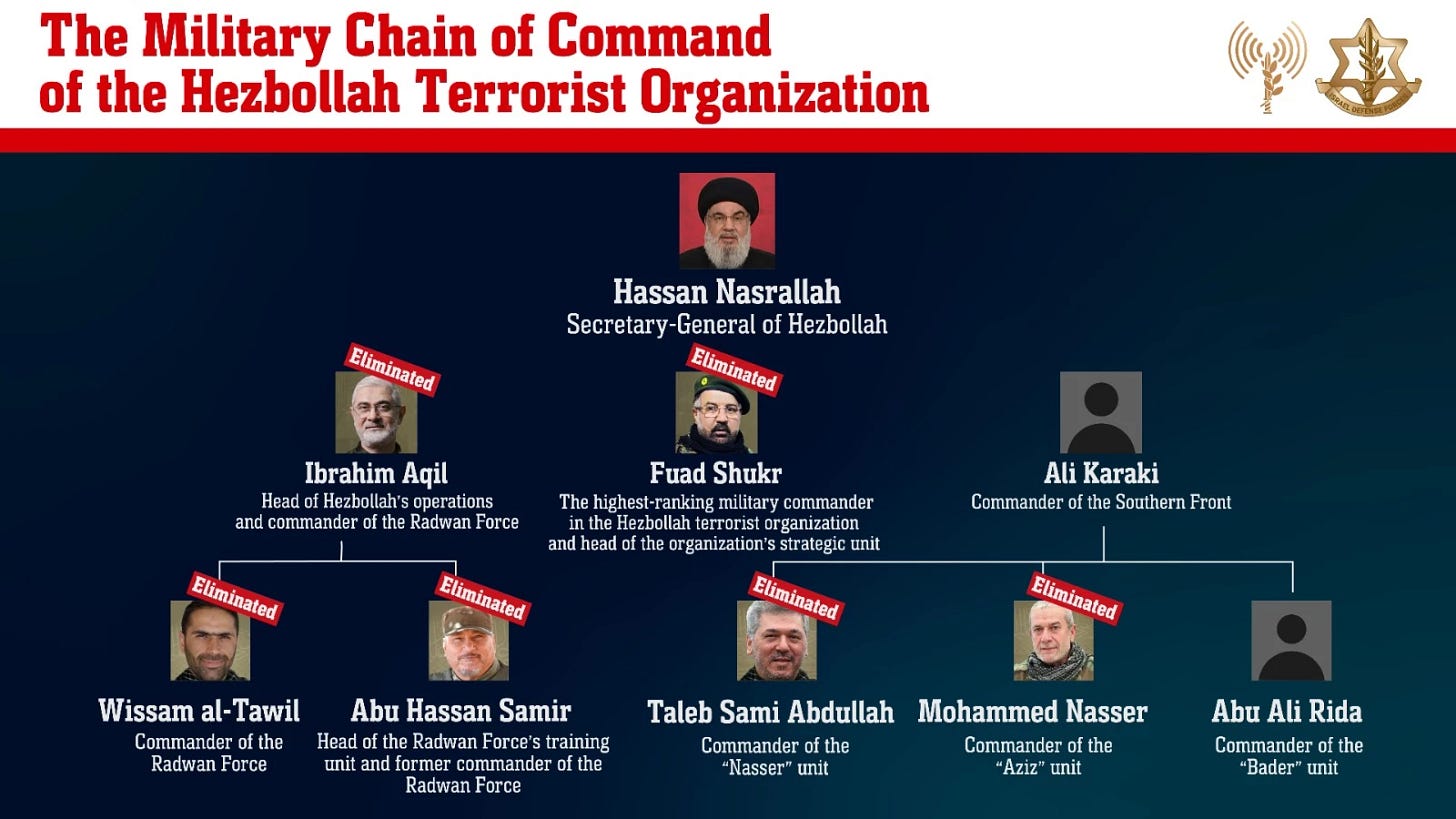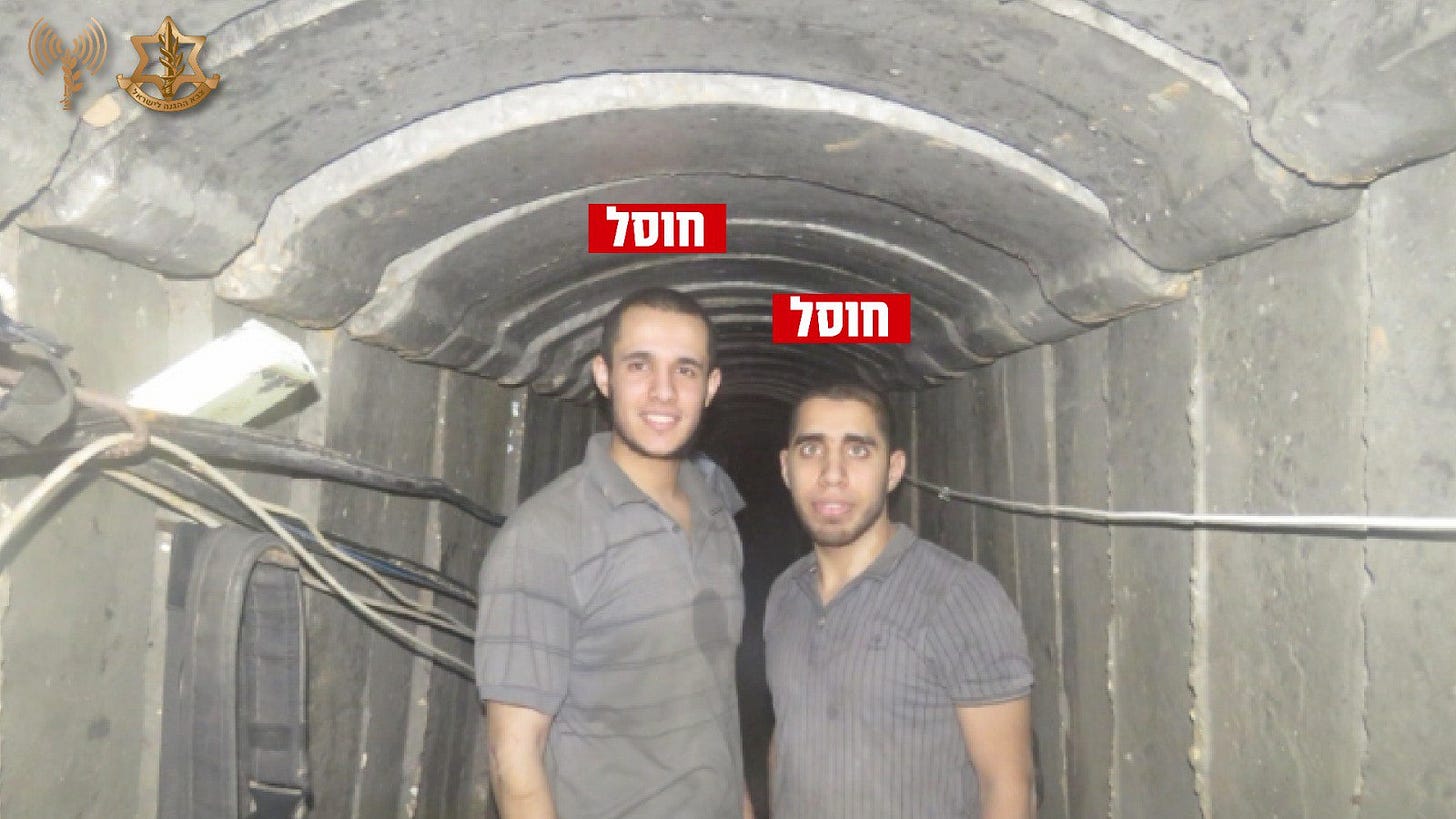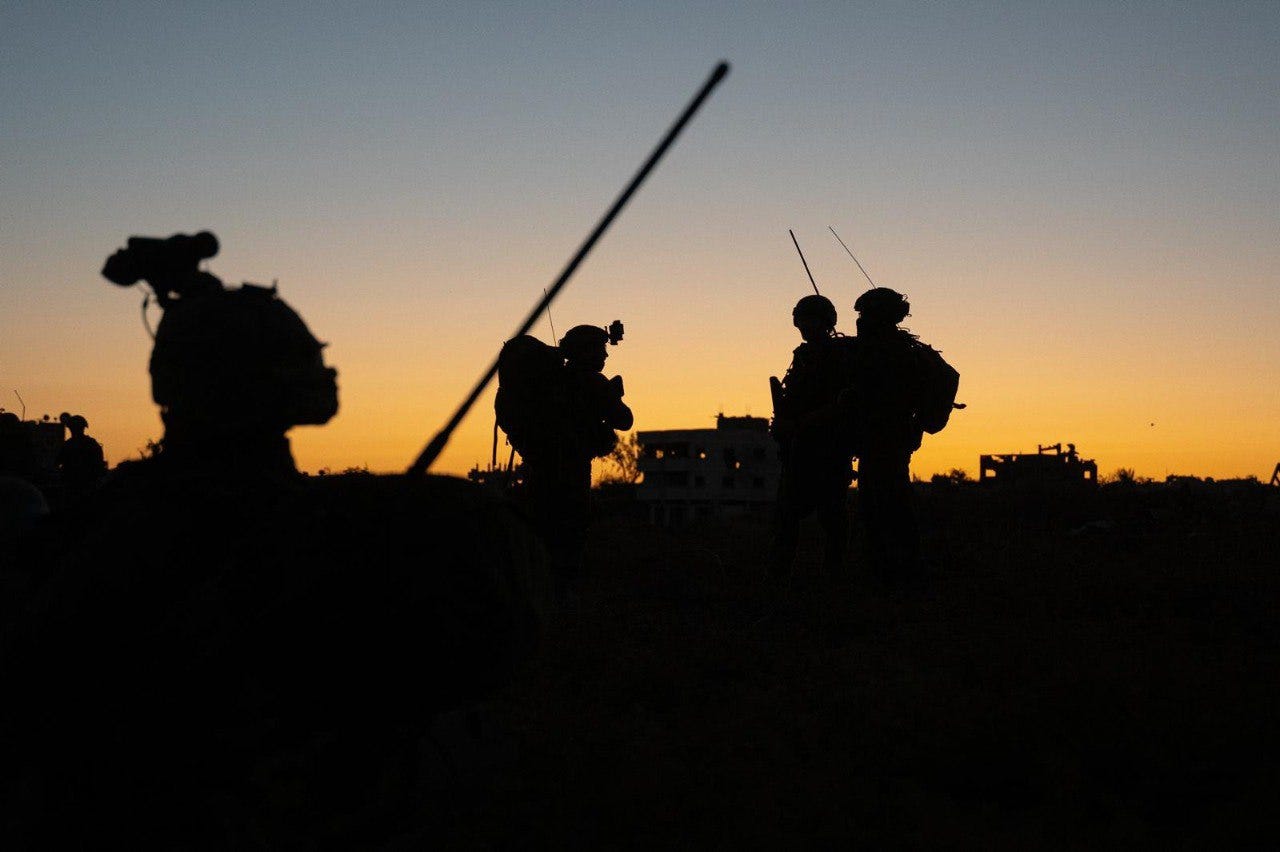DAY 351 OF THE WAR: Israel Eliminates Top Military Leadership of Hezbollah, Escalation Expected, Air Force Preemptively Hits Hezbollah Rockets and Missiles, Sa'ar Says No Thanks
Tel Aviv Diary, September 21, 2024
ZOOM BRIEFING— Sunday, September 22nd • 6 PM Israel, 4 PM GB, 11 AM EDT, 8 AM PDT Invitation will go out in the morning
I have been back in Israel for four days. While I didn’t expect to return to a nation at peace, I couldn’t have imagined witnessing what might be some of the most successful days in Israel’s military history since the Six-Day War. I wish I could say this success involved the rescue of the hostages, but unfortunately, it has taken place on another front—the Lebanese front.
The significance of the successes in Lebanon cannot be overstated. The two days of explosions created chaos within Hezbollah and dismantled what they believed to be a secure communication network. This destruction led to a decision that, in hindsight, was one of Hezbollah’s worst: gathering all their top commanders for a physical meeting. It’s unclear why they ignored the fact that Israel has significantly infiltrated their organization, particularly after the beeper explosions and the successful assassination of Fuad Shukr in July. Nevertheless, they went ahead with a large meeting. Given the number of participants, the meeting was discovered by Israeli intelligence. Remarkably, the Israeli Air Force quickly developed a plan to strike the meeting. Because it was held underground, the attack required a large bomb to destroy the building and its subterranean facilities. The strike killed the primary target, Ibrahim Aqil, Hezbollah’s military commander, along with 16 other top commanders.
Attacking Beirut and causing significant casualties clearly risks escalating the conflict, as Nasrallah has repeatedly warned that any attack on Beirut would prompt retaliation against Tel Aviv, potentially triggering an all-out war.
Referring to Ibrahim Aqil, U.S. National Security Advisor Jake Sullivan remarked today, “That individual has American blood on his hands.” Aqil was a crucial figure in the 1983 Beirut bombing that killed 241 U.S. Marines. Sullivan also expressed concern that Aqil’s death could lead to further escalation. The U.S. is sending another aircraft carrier to the region.
The destruction of Hezbollah’s communication networks, coupled with the wounding of thousands of mid- and senior-level members, has significantly impacted their capacity. As a result, Nasrallah and other decision-makers will hopefully hesitate before embarking on a full-scale war. They likely now realize that Israel has deeply penetrated their command structure—a less-than-ideal situation for launching a war. However, Hezbollah is clearly planning to retaliate.
Yesterday afternoon, before the attack on Beirut, Hezbollah managed to fire 150 rockets on the North, causing fires. Many of the mostly empty northern towns suffered direct hits, and once this war ends, it will take time and resources to rebuild those towns.
Saturday morning started quietly, but by noon, rocket attacks on the North resumed, and the Israeli Air Force (IAF) began another round of strikes, this time deeper into Lebanon. The focus was on Hezbollah’s mid-range rockets, which the terror group was preparing to use. Later this evening, a larger wave of IAF attacks targeted Hezbollah’s long-range missiles, reportedly as they were poised for launch. According to the army spokesperson, 400 launchers, including thousands of rockets, were hit during the attacks, which are continuing.
The Home Front Command has raised its preparedness level from Haifa northward. New orders limit the number of people allowed to gather, and classes can only occur if shelters are nearby.
SA'AR SAYS NO THANKS
Gideon Sa’ar announced tonight that, despite agreeing with Prime Minister Netanyahu to become Defense Minister a week ago, he is now refusing the position due to the worsening situation in the North. A recent poll showed that 69% of the public did not think he was qualified for the role, which may have influenced his decision. For someone with aspirations of a political comeback, taking the job under these circumstances would likely be political suicide.
HOSTAGES & GAZA
Tonight, demonstrations took place once again to show public support for the hostages, but unfortunately, it's clear that, at least for the moment, all eyes are on the North.
A spokesperson for the hostage families stated: "Netanyahu does not have a mandate to abandon the hostages in order to pursue a war in the North. Sinwar is getting his dream of a multi-front war against Israel."
The families of the six hostages, who were executed by Hamas two weeks ago, received word today that two of the terrorists responsible for their capture and probable execution were killed by Israeli forces in Gaza.
The Air Force attacked a school in Gaza that was being used as a Hamas command center. Here's the Army Spokesman's announcement:
This morning, Israeli Air Force fighter jets, with precise targeting and intelligence guidance from Military Intelligence and the Southern Command, struck Hamas terrorists operating in a command and control center that was established in a previously used school, 'Al-Falah,' in Gaza City.
The command and control center was used by Hamas terrorists to plan and carry out terrorist activities against IDF forces and the State of Israel.
Before the strike, multiple measures were taken to minimize the risk of harming civilians, including the use of precision weaponry, aerial surveillance, and additional intelligence information.
Hamas systematically violates international law, cruelly exploiting civilian institutions and the population as human shields for their terrorist operations. The IDF will continue to act with strength and determination against terrorist organizations that use schools and civilian institutions for cover."
BUSINESS
Israeli Yaron Singer sold the startup he founded, Robust Intelligence, to the communications giant Cisco for $400 million at the end of August. This was not announced at the time, at least in part due to the situation in Israel (even though Robust is an American company), but mainly because Cisco is in the midst of a major layoff of 7% of its workforce (6,000 individuals). In this context, perhaps it was thought that flaunting such a large expenditure on acquiring a 3-year-old startup with about $10 million in revenue and 70 employees, was not prudent at this time.
Cisco kept the deal quiet and only announced it through a blog post by one of its executives, but at the same time, Cisco sent Singer to present his company to 30,000 people at its annual event in Las Vegas — just four hours after the deal was signed at four in the morning. Singer (44), who until then owned a third of Robust, became a multi-millionaire.
Robust operates in the hottest area of tech investment: it developed a firewall for artificial intelligence — a tool designed to protect AI from itself. As advanced as AI may be, it can still make mistakes with far-reaching consequences. Robust's product is designed to detect and correct these mistakes, and it was developed long before ChatGPT and its competitors burst into our lives and made the industry red-hot.”
∞–––––∞–––––∞–––––∞–––––∞–––––∞–––––∞–––––∞–––––∞–––––∞
A PIECE OF HISTORY
ASHDOD PORT BOMBING
On March 14, 2004, two suicide bombers carried out an attack at the Ashdod Port in Israel, killing 10 civilians and injuring 16. Hamas, and the Al Aksa Martyrs Brigades, a militant offshoot of Yasir Arafat's Fatah faction, took credit for the attack. The bombings were reportedly carried out by two teenagers from the Jabaliya refugee camp in northern Gaza. The terrorist organizations claimed joint responsibility for the attack, which marked a rare instance of infiltration into a highly secured area. The bombers had hidden explosives and managed to enter the port, aiming to target hazardous materials, but failed to reach their intended site.
Survivors recalled the shock of the explosions, the confusion, and the frantic search for missing co-workers. A port employee described the scene as “chaotic,” with people running in all directions. Emergency responders who arrived faced a horrific scene, with bodies and debris scattered across the site. Some workers, moments before the blast, had been unaware of the imminent danger, continuing their daily routines when the explosions hit. Itzhak Tubol, 33, said he was driving home past the warehouse when he saw the first explosion and stopped to help. ''I saw the roof fly off and pieces of flesh fall down,'' he said. ''I spotted a head on the road. I grabbed a plastic bag to pick up the head. As I bent down to pick it up, I felt the second blast.''
Mr. Tubol said he was knocked flat and saw only black for a moment before discovering that he was covered in blood.
The attack occurred amid rising tensions during then-Prime Minister Ariel Sharon’s peace talks. As a result of the bombing, negotiations were derailed, and Sharon postponed discussions related to the peace process. This attack not only caused significant casualties but also intensified the ongoing conflict between Israel and Palestinian groups, setting back diplomatic efforts.









Grateful for the elimination of Hamas executioners